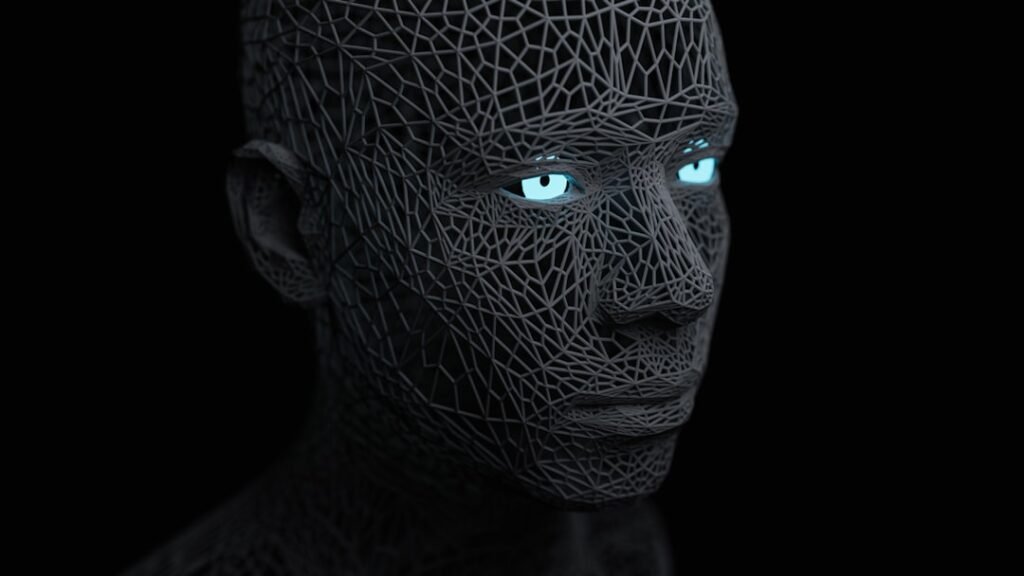As I navigate through my daily life, I often find myself surrounded by technology that seems to anticipate my needs and streamline my tasks. This phenomenon is largely due to the rise of artificial intelligence (AI), which has seamlessly integrated into various aspects of our everyday existence. From the moment I wake up to the sound of my AI-powered alarm clock to the time I unwind with a streaming service that curates content based on my preferences, AI has become an indispensable part of my routine.
It’s fascinating to consider how this technology, once confined to the realms of science fiction, has evolved into a practical tool that enhances our lives in numerous ways. The concept of everyday AI encompasses a wide range of applications that are designed to make our lives easier, more efficient, and often more enjoyable. As I delve deeper into this topic, I realize that AI is not just a futuristic idea; it is a present reality that shapes how I communicate, travel, manage my health, shop, and even secure my home.
The integration of AI into these areas has not only transformed the way I interact with technology but has also redefined my expectations of what is possible. In this article, I will explore the various dimensions of everyday AI and how it continues to evolve, impacting our lives in profound ways.
Key Takeaways
- Everyday AI is becoming increasingly integrated into various aspects of our daily lives, from communication and entertainment to transportation and healthcare.
- AI is revolutionizing communication and entertainment through personalized content recommendations, virtual assistants, and chatbots that enhance user experience and engagement.
- In transportation and navigation, AI is improving efficiency and safety through features like predictive maintenance, autonomous vehicles, and real-time traffic analysis.
- AI is transforming healthcare and wellness with advancements in medical imaging, personalized treatment plans, and wearable devices that monitor health and fitness.
- In shopping and personal assistance, AI is enhancing the customer experience with personalized recommendations, virtual shopping assistants, and voice-activated devices for convenience and efficiency.
AI in Communication and Entertainment
When I think about communication, I can’t help but acknowledge how AI has revolutionized the way I connect with others. From chatbots that provide instant customer service to virtual assistants that help me schedule meetings, AI has made communication more efficient and accessible. For instance, when I send a message through my smartphone, predictive text and autocorrect features powered by AI ensure that my thoughts are conveyed clearly and quickly.
This technology not only saves me time but also enhances the clarity of my communication, allowing me to focus on what truly matters in my conversations. In the realm of entertainment, AI has transformed how I consume media. Streaming platforms like Netflix and Spotify utilize sophisticated algorithms to analyze my viewing and listening habits, curating personalized recommendations that often lead me to discover new favorites.
The ability of these platforms to learn from my preferences means that I spend less time searching for content and more time enjoying it. Additionally, AI-driven content creation tools are emerging, enabling artists and creators to experiment with new forms of storytelling and music production. This intersection of technology and creativity excites me, as it opens up endless possibilities for innovation in the entertainment industry.
AI in Transportation and Navigation

Transportation is another area where AI has made significant strides, fundamentally altering how I travel from one place to another. The advent of navigation apps like Google Maps and Waze has made it easier for me to find the quickest routes to my destinations. These applications leverage real-time data and machine learning algorithms to provide traffic updates, suggest alternative routes, and even estimate arrival times with remarkable accuracy.
As someone who often finds myself navigating unfamiliar areas, I appreciate how AI enhances my travel experience by reducing stress and saving time. Moreover, the rise of autonomous vehicles represents a groundbreaking shift in transportation. While I may not yet own a self-driving car, the advancements in this field are undeniably exciting.
Companies are investing heavily in developing vehicles equipped with AI systems capable of making split-second decisions on the road. The potential for increased safety and reduced traffic congestion is something I look forward to as these technologies continue to evolve. As I envision a future where AI-driven cars become commonplace, I can’t help but feel optimistic about the possibilities for more efficient and safer transportation.
AI in Healthcare and Wellness
| Metrics | Data |
|---|---|
| AI Adoption in Healthcare | Increasing rapidly |
| AI Applications | Diagnosis, Treatment, Drug Discovery, Personalized Medicine |
| AI Impact on Patient Outcomes | Improved accuracy and efficiency |
| AI Challenges | Data privacy, Ethical considerations, Integration with existing systems |
In recent years, AI has emerged as a powerful ally in the field of healthcare, significantly impacting how I approach my well-being. From wearable devices that monitor my heart rate and activity levels to telemedicine platforms that connect me with healthcare professionals remotely, AI is enhancing my ability to manage my health proactively. These technologies provide me with valuable insights into my physical condition, allowing me to make informed decisions about my lifestyle choices.
Furthermore, AI’s role in diagnostics is nothing short of revolutionary. Machine learning algorithms can analyze medical images with remarkable precision, assisting doctors in identifying conditions such as tumors or fractures more accurately than ever before. This not only improves patient outcomes but also alleviates some of the burdens on healthcare professionals.
As someone who values preventive care, I find comfort in knowing that AI is playing a crucial role in early detection and treatment options, ultimately leading to a healthier society.
AI in Shopping and Personal Assistance
Shopping has undergone a transformation thanks to AI technologies that cater to my preferences and streamline the purchasing process. E-commerce platforms utilize recommendation engines that analyze my browsing history and past purchases to suggest products tailored to my tastes. This personalized shopping experience saves me time and effort while ensuring that I discover items that genuinely interest me.
Additionally, virtual fitting rooms powered by augmented reality allow me to visualize how clothing will look on me before making a purchase, reducing the likelihood of returns. Personal assistants like Amazon’s Alexa or Apple’s Siri have also become integral parts of my shopping experience. These voice-activated AIs can help me create shopping lists, find product information, and even place orders with just a few spoken commands.
The convenience they offer is unparalleled; I can multitask while managing my shopping needs without having to navigate through multiple apps or websites. As I reflect on these advancements, it’s clear that AI is not just changing how I shop; it’s enhancing the overall experience by making it more intuitive and user-friendly.
AI in Home Automation and Security

Home automation is another area where AI has made significant inroads into my daily life. Smart home devices equipped with AI capabilities allow me to control various aspects of my living environment with ease. From adjusting the thermostat to managing lighting systems or even controlling appliances remotely, these technologies have made my home more comfortable and energy-efficient.
The convenience of being able to manage my home from my smartphone or through voice commands is something I have come to rely on. Security is another critical aspect where AI plays a vital role in enhancing my peace of mind. Smart security systems equipped with facial recognition technology can distinguish between familiar faces and potential intruders, providing an added layer of protection for my home.
Additionally, AI-powered surveillance cameras can send alerts directly to my phone if they detect unusual activity, allowing me to respond quickly if necessary. As someone who values safety and security, I appreciate how these advancements empower me to take control of my home environment while ensuring that it remains a safe haven.
AI in Finance and Banking
The financial sector has also embraced AI technologies, fundamentally changing how I manage my finances. Online banking platforms utilize machine learning algorithms to analyze spending patterns and provide personalized financial advice tailored to my needs. This level of customization allows me to make informed decisions about budgeting and saving while keeping track of my financial goals more effectively.
Fraud detection is another area where AI has proven invaluable in banking. Advanced algorithms can analyze transaction data in real-time, identifying suspicious activities that may indicate fraud. This proactive approach not only protects my financial assets but also enhances trust in financial institutions as they work diligently to safeguard their customers’ interests.
As I navigate the complexities of personal finance, I find comfort in knowing that AI is working behind the scenes to ensure security and efficiency.
Conclusion and Future of Everyday AI
As I reflect on the pervasive influence of AI in various aspects of my life, it becomes evident that we are only scratching the surface of its potential. The advancements we have witnessed thus far are just the beginning; as technology continues to evolve, so too will the applications of AI in our everyday lives. The future holds exciting possibilities for even greater integration of AI into our routines, enhancing our experiences in ways we may not yet fully comprehend.
Looking ahead, I am optimistic about the role AI will play in shaping a more efficient and connected world. However, it is essential for us to approach this technological evolution with mindfulness and responsibility. As we embrace the benefits of everyday AI, we must also consider ethical implications and ensure that these technologies are developed and implemented in ways that prioritize human well-being.
Ultimately, as we stand on the brink of this new era, I am excited about the opportunities that lie ahead and how they will continue to enrich our lives through everyday AI.

